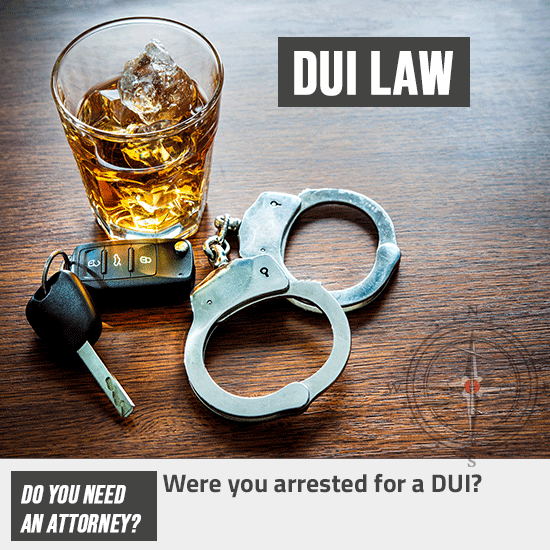
A typical DUI begins when a law enforcement officer observes a driver commit a vehicle code violation. These violations are not always associated with driving under the influence. They could be simple violations such as improper window tint or malfunctioning brake light. In order to stop a vehicle, a law enforcement officer must have reasonable suspicion that the driver has violated a vehicle code violation. An exception to this requirement is when the law enforcement agency sets up a DUI Checkpoint which allow officers to briefly stop and detain all drivers passing though the checkpoint and to determine whether or not the driver is under the influence of an alcoholic beverage or other controlled substance.
After an officer has observed a vehicle code violation and has stopped the vehicle, the officer will approach and engage the driver in a conversation. The conversation is a way for the officer to ascertain and observe objective signs of intoxication. The officer will be looking for signs such as bloodshot, watery eyes, slurred speech, or an odor of alcohol. If the officer suspects that the driver may be intoxicated with drugs or alcohol, he or she will ask the driver to exit the vehicle in order to conduct a DUI investigation including field sobriety tests designed to measure the test-taker’s balance, motor skills and ability to remember and follow instructions.
The officer may also ask the driver to take a breath test using his or her portable preliminary alcohol sensor (“PAS”) device. The PAS test is not mandatory for most drivers. However, drivers who are under the age of 21 and those who are on probation for a DUI offense are required to take a PAS test when requested by an officer.
After an officer has determined there is sufficient probable cause to believe that the driver is intoxicated with alcohol, drugs or both, the driver will be arrested. The driver will be given the option of taking either a breath or blood test. If the driver refuses to take with test, the officer may obtain a warrant to draw blood. Refusal to take a breath or blood test also has additional penalty from mandatory jail time and possible yearlong driver’s license suspension and will not be eligible for a restricted driver’s license. The breath test is typically completed on a Breathalyzer machine at the police station and the test results are immediately available. Drivers who select the blood test must be transported to a hospital or laboratory where a medical professional can conduct the blood draw. The blood test does not provide immediate results and the results of the blood test are usually not known for several weeks. If the driver is suspected of driving under the influence of drugs, he or she will have to take a blood test as there is currently no breath test available that can measure drug intoxication.
After the officer has prepared his report, the arresting agency will refer the case to the local prosecutor (District Attorney or City Attorney), who will then determine what charges, if any, to file. If charges are filed, the case will go to court for the defendant’s arraignment. In most DUI cases that involve alcohol, the defendant will be will be charged, pursuant to pursuant to California Vehicle Code Section 23152(a) VC and driving with a BAC of 0.08 percent or higher in violation of CA Vehicle Code Section 23152(b) VC. This allows the prosecution to pursue two different theories of guilt.
Hiring an experienced DUI Attorney is critical as we can intervene prior to any charges being filed by presenting any and all exculpatory evidence that the arresting agency and the prosecutor may have overlooked.
There are a number of defenses that may be raised in fighting your case including motion to suppress evidence pursuant to Penal Code section 1538.5, attack the results of the breath or blood test by demonstrating a rising blood alcohol, and other incident reports that can prove fatal to the prosecutors case.